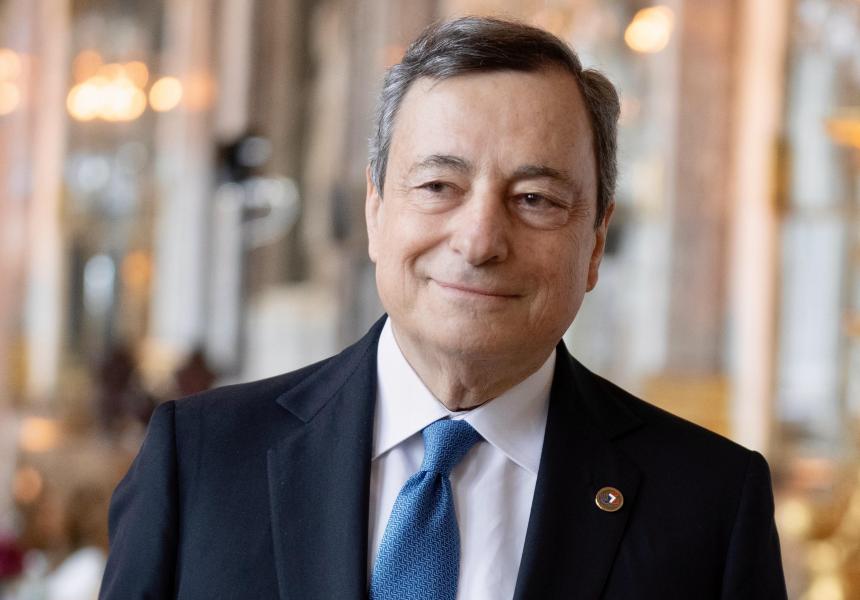
EXPLAINED: Who Gains or Loses, What's Next in Italy Crisis
The decision of Prime Minister Mario Draghi to resign on Thursday, almost 12 hours after his “unity” coalition broke dramatically in parliament, was the latest step in political limbo which was likely to last for months before the new government with a solid to lead Europe European Economy The third largest union. On Thursday afternoon, about the only certainty that the Italians went to the ballot box on September 25, about six months earlier.
Even before the date was determined, the Italian parties who had a fight were dead and running, some of them lost their old supporters in their leadership over the decision by the three main-pop-writing coalition partners, right wing and conservative-to leave Draghi. In 17 months at the top of the government leadership, Draghi was seen as a pillar of stability in the continent wrapped in high inflation and fear of lack of energy when the war in Ukraine was protracted.
Demonstrations, petitions, and requests by citizens, mayors and lobbyists to save their threatened government in the end were not heeded. The priority of political partisan wins over the solidarity in a country, such as most Europe, facing the approaching winter because it is related to the consequences of its dependence on gas from Russia.
How the failure to heed the request of citizens can form voter decisions will not be known until the votes are calculated and parties in the talks in the back room falsify the new government.
If Draghi has so many fans, what’s wrong?
Many pointed to the fingers aimed at the 5-star movement, which became the biggest political power of parliament in the 2018 election. The leader, Giuseppe Conte, was recruited by 5-Stars to become a prime minister in the back-to-back government, has joined the “National Unity Coalition” substitute. But he seems to be complicated because he lost his position from Draghi, who was tapped by President Sergio Mattarella to guide the rise of the Italian economy in Pandemi. Last week, a 5 -star senator boycotted confidence in the Energy Cost Assistance Bill.
But Draghi did not suffer from lack of run-in with other coalition partners. To quote only one: the leader of the right-wing league Matteo Salvini made a government decision that needed a vaccination of Covid-19, a negative test or recovery recently from infection to a place to access places including restaurants, gyms, and workplaces.
Both Conte and Salvini, known for the pro-Russian attitude, finally reluctant to approve the sending of Italian weapons to Ukraine. Former Prime Minister Silvio Berlusconi, a conservative Forza Italian party, also left a coalition, paid attention to Russian leader Vladimir Putin, treating him like a close friend at the Sardinia Sea Vila.
A small party leader, Centrist, Carlo Calenda Tweeted with the irony: “This will be a coincidence, but the most serious and pro-Attaratan government from history has recently sent by those who have supported the pro-cutin position.”
What happened next?
Mattarella, the President of Italy, told the country on Thursday night that while the initial election was always “the last choice,” he did not see opportunities for the fourth government in a five -year parliamentary term. So he signed a parliamentary dissolution decree.
Fatal blows for the Draghi government attacked when the senators from Conte, Salvini and Berlusconi parties refused to renew their support for Draghi in confident voices sought by the Prime Minister in an 11-hour effort to revive the coalition.
The Italian Constitution mandates that the election must be held within 70 days from the decree that ended the parliament, whose five -year term will end in March 2023.
WHO WINS?
The poll in recent months shows that the right-wing brothers from the Italian Party, the only big enough power in parliament to refuse to join the Draghi coalition can collect more than 20% if the election. That’s about the same percentage as the poll giving the left and left Democratic party.
But former Prime Minister Enrico Letta, whose Democratic Party gave Draghi of the voice of confidence, has relying on the election alliance with a 5-star movement, a prospect is clearly uncertain after Populis left Draghi.
Giorgia Meloni, brothers and sisters from Italian leaders, has been allied for years with Salvini and Berlusconi parties, but while their popularity has increased, their party has seen wealth that has declined in local elections. But with Salvini itching for years to become a prime minister, Meloni might face Salvini-Berlusconi agreement to make League leaders the next prime minister.
Who loses?
Unraveling the dramatic and rapid Draghi “unity” coalition is likely to leave his footsteps on the Italian political landscape. As a former Prime Minister Matteo Renzi, a political maneuver, who helped drop Conte’s two premiership, even before the vote was counted Wednesday night: “There is nothing the same as a political party.”
On Thursday night, two famous supporters in Forza Italy from Berlusconi who were ministers in the Draghi Cabinet announced that they would leave the party. They accused the media maestro of betraying a loyal pro-European, pro-Nato by siding with Salvini Euro-Skeptic and leaving Draghi. As for Populis, the 5-star movement has been bleeding by parliamentary members for months. The most prominent for disability was Foreign Minister Luigi in Maio, who recently formed a pro-Nato party.
How long will Draghi stay in the office
Draghi remained until the new government was formed and sworn in. After the 2018 election, who saw the 5-star experts disrupted experts and polls with a very large victory, it took 90 days to get a new government, anchored by Conte’s and Salvini troops. So you can imagine, Draghi in the role of his caregiver, may occupy the Prime Minister’s office this year.
The appointment of guards will make it impossible for the government to be paralyzed to take new initiatives. But Draghi, in grateful to his cabinet on Thursday night, explained that he intended to remain useful.
“Italy has everything (needed) to be strong, authoritative, credible,” in the world. Draghi said. He reminded his ministers that the government must remain wrestling with Pandemic, War in Ukraine, inflation and energy costs and the reform economy.




